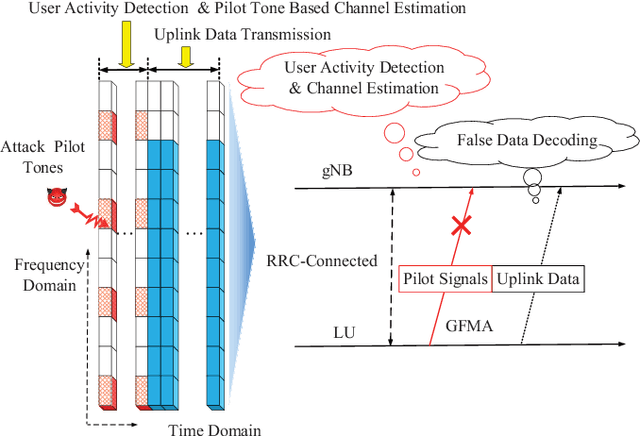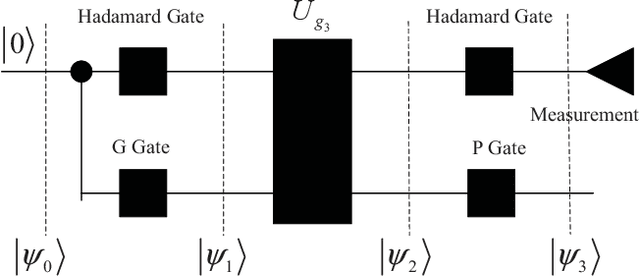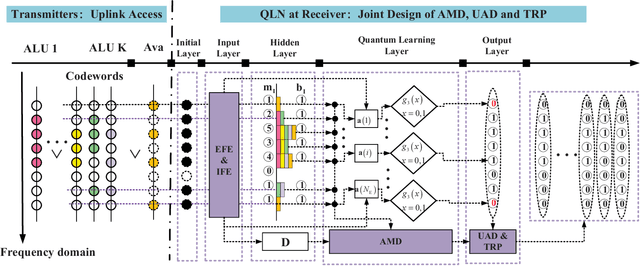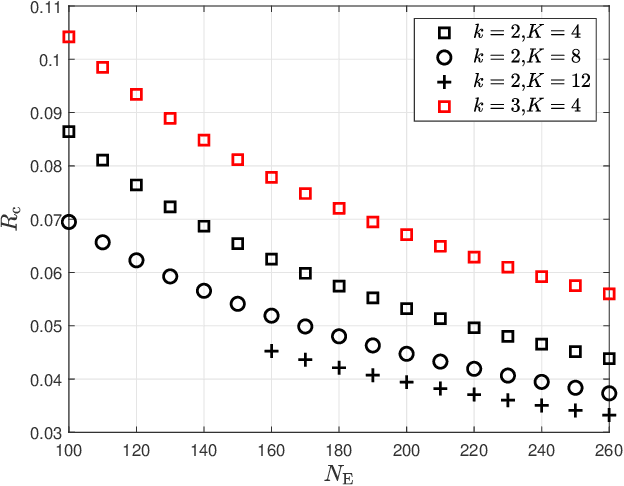Pinyi Ren
Quantum Learning Based Nonrandom Superimposed Coding for Secure Wireless Access in 5G URLLC
Jan 24, 2021



Abstract:Secure wireless access in ultra-reliable low-latency communications (URLLC), which is a critical aspect of 5G security, has become increasingly important due to its potential support of grant-free configuration. In grant-free URLLC, precise allocation of different pilot resources to different users that share the same time-frequency resource is essential for the next generation NodeB (gNB) to exactly identify those users under access collision and to maintain precise channel estimation required for reliable data transmission. However, this process easily suffers from attacks on pilots. We in this paper propose a quantum learning based nonrandom superimposed coding method to encode and decode pilots on multidimensional resources, such that the uncertainty of attacks can be learned quickly and eliminated precisely. Particularly, multiuser pilots for uplink access are encoded as distinguishable subcarrier activation patterns (SAPs) and gNB decodes pilots of interest from observed SAPs, a superposition of SAPs from access users, by joint design of attack mode detection and user activity detection though a quantum learning network (QLN). We found that the uncertainty lies in the identification process of codeword digits from the attacker, which can be always modelled as a black-box model, resolved by a quantum learning algorithm and quantum circuit. Novel analytical closed-form expressions of failure probability are derived to characterize the reliability of this URLLC system with short packet transmission. Simulations how that our method can bring ultra-high reliability and low latency despite attacks on pilots.
 Add to Chrome
Add to Chrome Add to Firefox
Add to Firefox Add to Edge
Add to Edge